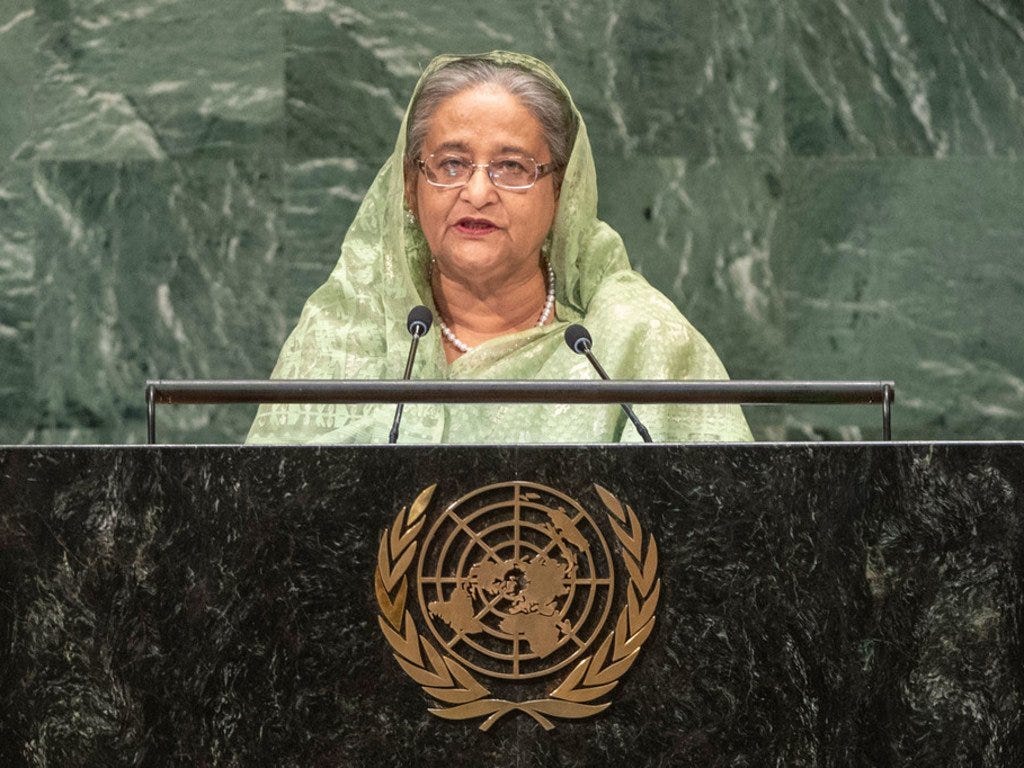A Political Earthquake in Bangladesh
Global Dispatches listeners would have seen this coming!
I was driving back from the Aspen Security Forum on July 19th when I caught a BBC World News Service segment on escalating protests in Bangladesh. Bangladesh is no stranger to street protests. But there was something uniquely brutal about the government’s response. The government was suppressing peaceful demonstrators with shoot-on-sight orders, unlawful detentions, and a general level of brazenness that suggested the government of Sheikh Hasina was genuinely threatened by these demonstrators.
I’ve had a keen interest in Bangladesh ever since I visited Dhaka, Chattogram, and a few more remote parts of the country on a reporting trip about ten years ago. That trip mostly focused on health and development issues. There was a lot to show off. Bangladesh had made profound progress on a slew of health and development challenges over the last ten to fifteen years. It is frequently (and justifiably) cited as a sterling example of a country that partnered effectively with the international community and its local NGO sector to deliver on health and development.
Bangladesh has truly made huge progress on both social and economic indicators! This chart is from the United Nations Development Program and shows huge gains in both GDP per capita and on UNDP’s Human Development Index.
All the while, Prime Minister Sheikh Hasina has taken a more authoritarian turn
Because of all this genuine progress in Bangladesh, you would often see Prime Minister Sheikh Hasina feted at international conferences dedicated to global development. The fact that she’s a long-serving secular female leader of a majority Muslim country has also raised her profile on the international stage. She’s a regular at UNGA.
But all the while, Sheikh Hasina was taking a more authoritarian turn. Bangladesh has become more politically closed. Civil society has less room to maneuver. Dissent is less tolerated. She has been Prime Minister consecutively since 2009, more recently elected for a fifth term in January after her Awami League party won overwhelmingly in an election that was neither free nor fair.
She was known as politically deft — and she played her geopolitical hand with acumen. But her ouster today suggests one outcome for leaders who tolerate corruption among elites while undermining the institutions that make a democracy healthy.





